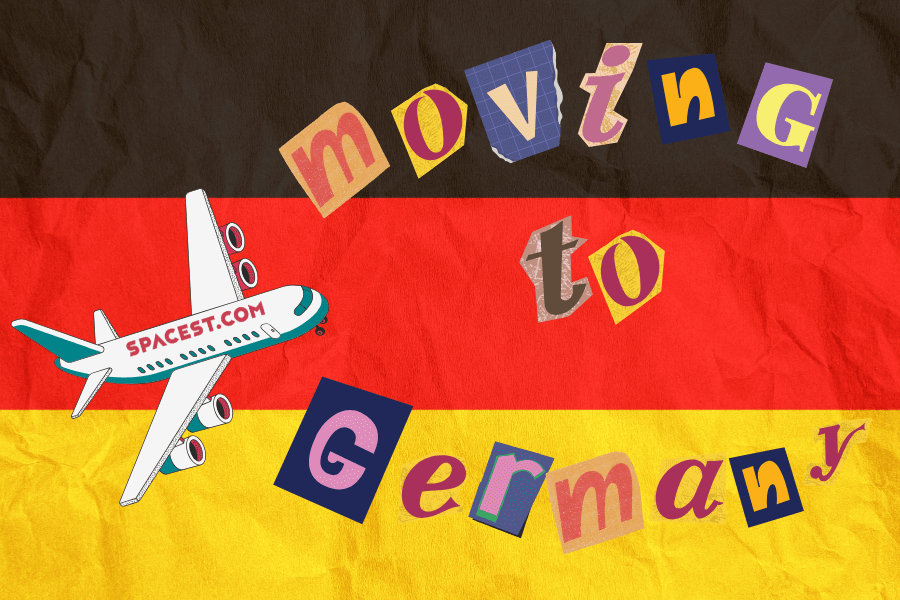- Practical Guide for International Students and Workers
- 1. Choose the right city
- 2. How to Move to Germany: Visa and Documentation
- 3. Finding accommodation
- 4. The most requested cities
- 5. How to move to Germany: Registration (Anmeldung)
- 6. Open a Current Account
- 7. Health Insurance
- 8. German SIM Card
- 9. How to Move to Germany: Getting Settling in
- 10. Useful Resources
- Conclusion
Practical Guide for International Students and Workers
Germany is a favorite destination for students and professionals thanks to excellent universities, job opportunities and quality of life.
Whether you are about to start a course of study or move you for work, it is essential to plan every detail.
Here is a complete guide to better understand how to move to Germany.
1. Choose the right city
Germany’s major cities – Berlin, Munich, Frankfurt, Hamburg and Stuttgart – offer very different lifestyles, job markets and rental prices.
Currency:
- Proximity to universities or business centers;
- Cost of living and average rents;
- Public transport and connections;
- Local culture and services.
2. How to Move to Germany: Visa and Documentation
For students:
- Letter of admission: required for visa application.
- Proof of financial resources: often via a blocked account (is. Fintiba, also a partner of Spacest.com) that demonstrates your self-sufficiency.
- Health insurance: public if you are registered in Germany.
- Visa Application: submit your application to the German consulate in your country at least 2-3 months in advance (only if necessary).
For workers:
- Job offer or contract: evaluate the“opportunity card”employment agencies for people moving to Germany and looking for work.
- Recognition of qualifications: some professions require official recognition of the qualification.
- Health insurance:publish if you are registered in Germany.
- Visa Application: Start early, timing may vary.
3. Finding accommodation
Knowing how to move to Germany and finding the ideal accommodation is essential.
To get started we suggest you use verified online platforms such as Spacest.com.
Why choose Spacest.com?
- Verified listings: all accommodations are checked for quality and reliability.
- Furnished solutions: apartments, rooms and studios ready to move into.
- Flexible stays: book from a minimum of 3 months, ideal for students and expats.
- Digital booking: securely book your home online before your arrival.
4. The most requested cities
- Berlin: Creative hub, lively neighborhoods and numerous universities.
- Munich: Strong job market, especially in technology and engineering.
- Frankfurt: Financial capital, many international companies.
- Hamburg and Stuttgart: Renowned for industry, logistics and research.
5. How to move to Germany: Registration (Anmeldung)
Upon arrival in Germany, you must register at the Bürgeramt (office citizens) within 14 days.
Bring with you:
- Rental agreement;
- Passport/ID;
- Confirmation of landlord’s residence (Wohnungsgeberbestätigung).
Registration is essential to open a bank account, request a residence permit (only for non-EU citizens) and access public services.
Discover the Anmeldung in our dedicated guide So meldest du dich in Deutschland an (in German, click on the translator at the top right in the link bar and select your preferred language).
6. Open a Current Account
A German bank account is necessary to pay rent, receive salary and manage daily expenses. Many banks offer solutions dedicated to students and expats.
Online banks (es. N26, Revolut, Trade Public) allow for quick opening.
7. Health Insurance
Health insurance is mandatory and it is both public and private. Students can access discounted rates with public insurance.
Meanwhile, workers must register with a public (gesetzliche Krankenversicherung) or private insurance (private Krankenversicherung).
8. German SIM Card
To stay connected, purchase a prepaid or subscription SIM card.
The main operators are Telekom, Vodafone and O2. Bring your passport for registration.
9. How to Move to Germany: Getting Settling in
- Public Transport: All cities have efficient subways, trams and buses.
- Language: Many speak English, but knowing German makes everyday life easier.
- Community: Join expat groups, college clubs, or professional networks to socialize.
10. Useful Resources
German Foreign Office – Visa information
Fintiba – Blocked Student Accounts
Spacest.com – Verified listings in Germany
Conclusion
Moving to Germany is an experience full of opportunities, as long as you prepare carefully.
Choose a verified accommodation, organize the documentation and learn about local procedures: so you can start your new journey without stress.
To find a home easily and safely, discover the Spacest.com listings in Germany.

